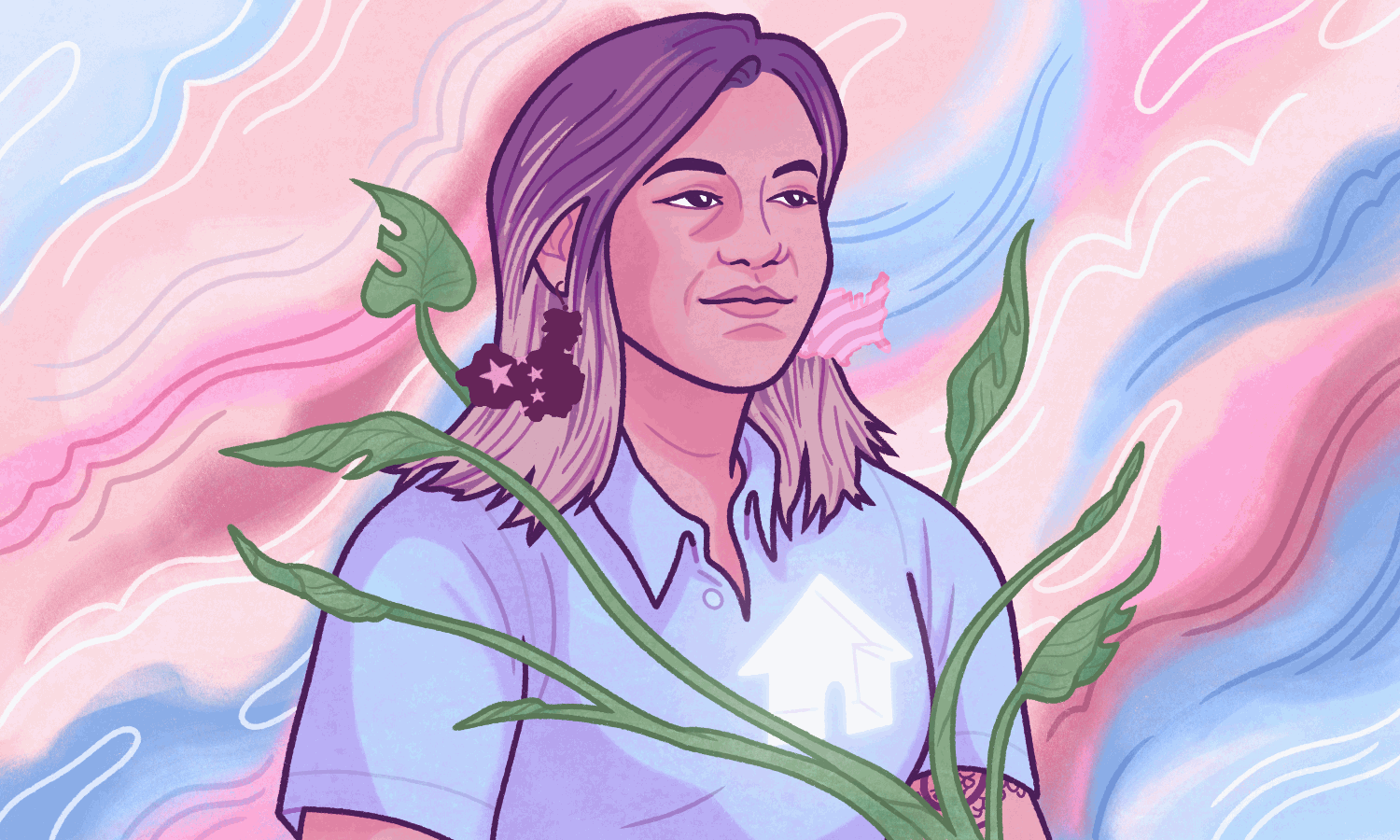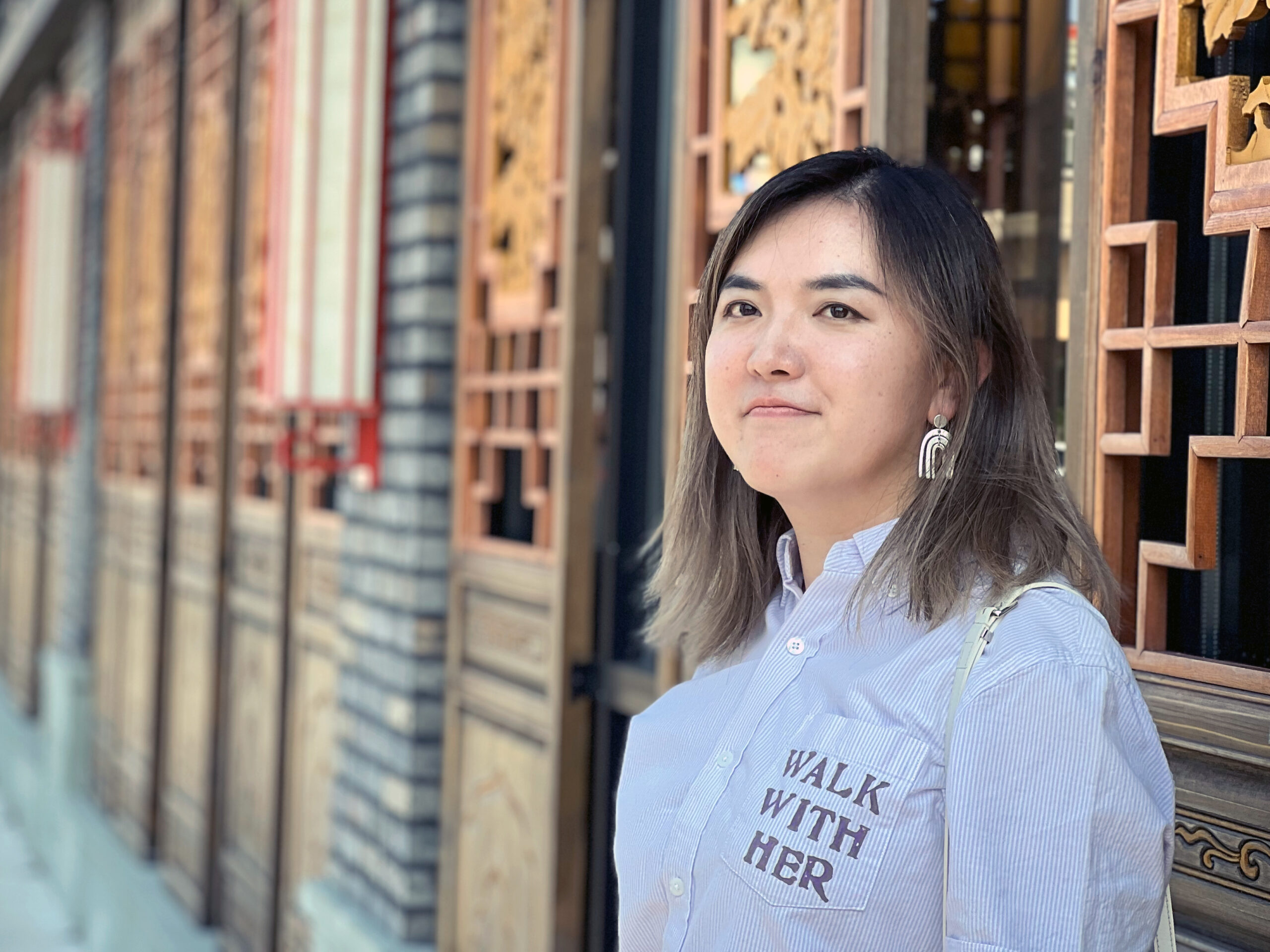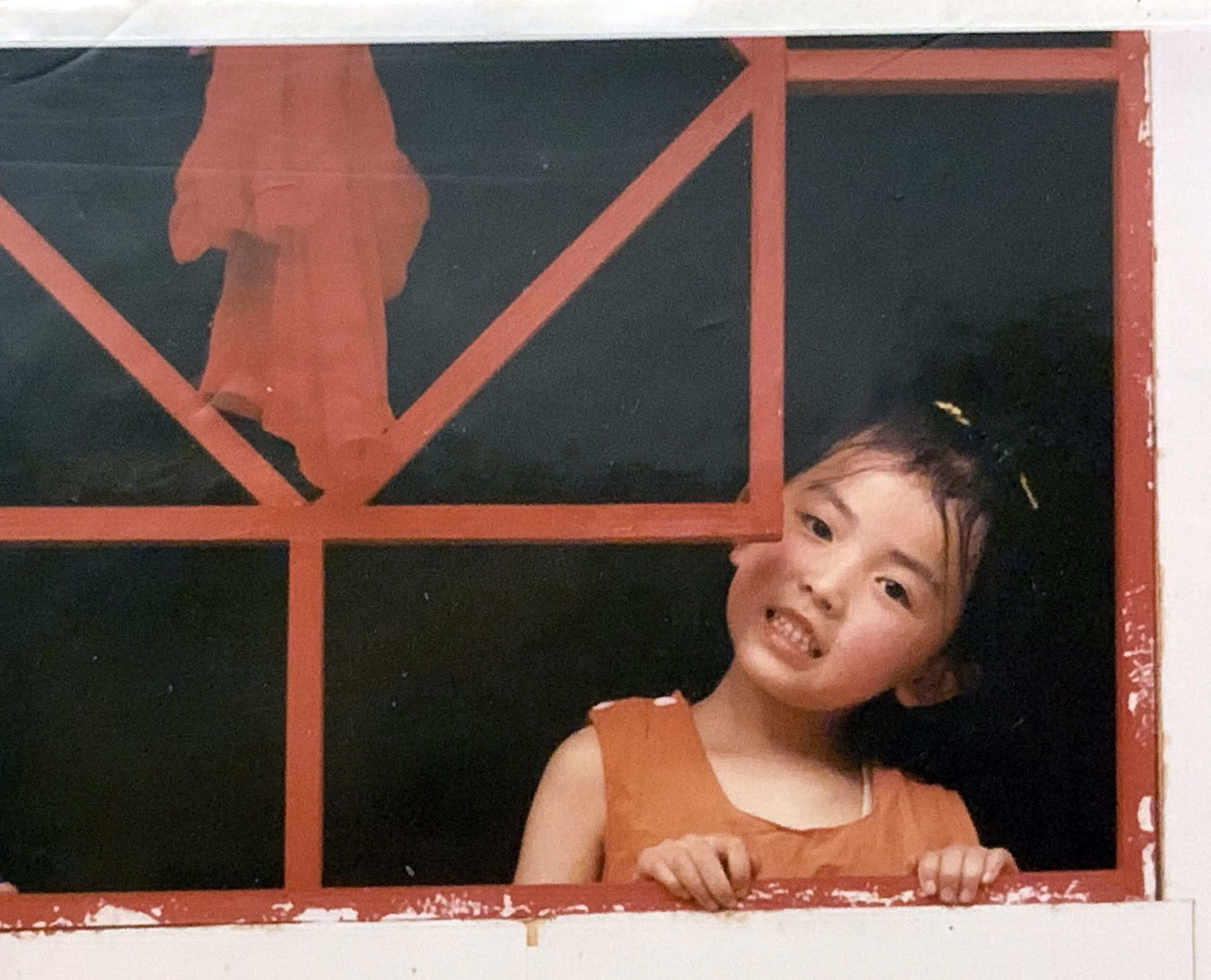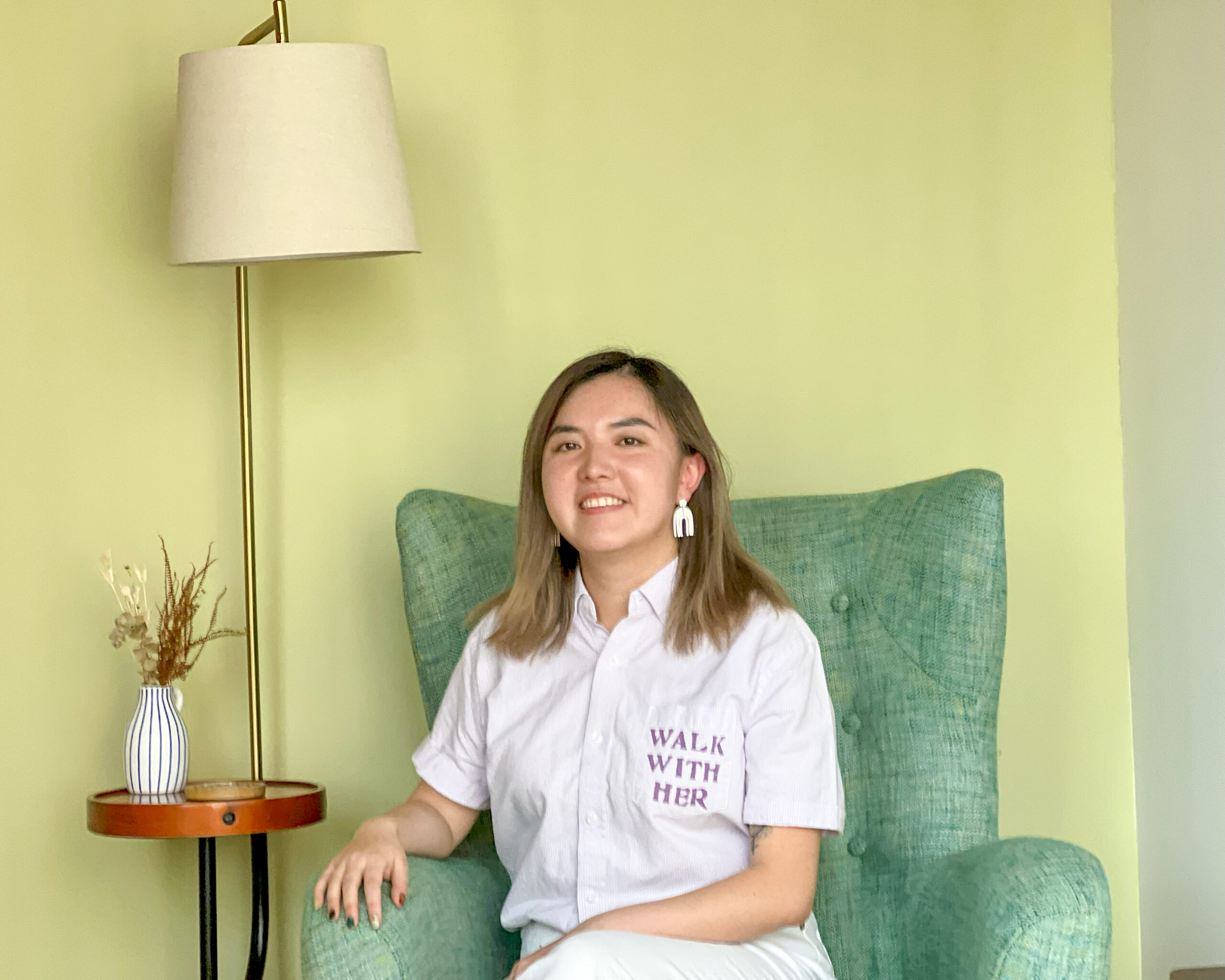
LAUREN IBAÑEZ / NEXTGENRADIO
What is the meaning of
Nidhi Shastri speaks with Lola Wang, a queer Asian immigrant therapist and founder of Fig Tree Therapy in Chicago’s West Loop. Wang is originally from Taiyuan, China, and immigrated to the U.S. in 2014 to pursue social work. She’s now working to create a home and sense of belonging for herself and others within Chicago’s queer immigrant community.
How a Chicago therapist is creating a place where LGBTQ communities of color can belong
Building a sense of belonging for queer people of color
Click here for audio transcript
Home doesn’t necessarily mean it has to be family… I think home could also mean the community you create for yourself.
My name is Lola Wang. I’m an Asian queer therapist. That’s literally my Instagram handle [laughs] and I’m a therapist working in Chicago.
Home for me means belonging. Uh, it’s somewhere that I can be authentically who I am and still be accepted. So it’s not a physical space, it’s more of a feeling. I am a trauma survivor and I am also a therapist who work with a lot of trauma survivors.
A lot of the trauma I experienced happened when I was younger, when I was in China …..
Even if you have a successful career, if you’re in your thirties and not, you’re not married, you are still considered to be a failure to some extent. My queer identity, just liberated me from that idea because I know that it doesn’t matter how successful I am in my professional life, I’m still going to be a disappointment to some extent.
Mental health is still pretty much stigmatized in China and accessing to mental health service still belongs to a group of like more privileged people.
When I became a therapist, I was also using a second language to talk with my clients.
A lot of my, like Chinese speaking clients, they are experiencing, like, they heard from their parents that [speaks Mandarin] it’s like basically we had it a lot worse than you do.
I came to the US in 2014 for social work school. I initially never thought I’m gonna stay here.
After graduation I had this one year of time to figure out what I want, so I become a therapist, and that this the first time in my life I realized that this is something I’m really passionate in doing, and this is something I’m also pretty good at doing.
I worked at a nonprofit on the West Side and South Side of Chicago. I really loved that place. The only thing that I was missing was when I was talking with the program director saying that, is it possible for us to expand our service to, for example, Chinatown community, so we’re able to work with more Asian clients, they were telling me that we are not culturally competent to provide that service.
But in reality, they’re also sending white therapists to Black and Brown communities. So that just didn’t feel right for me.
Uh, when I was looking for a therapist myself, I wanted to find someone who understand my queer identity, understand my Asian identity, and also understand the immigrant experience. It was very hard for me to find someone who understand those different pieces of me.
That’s when I decided that… I’m gonna start a practice for people like me.
I had newer therapists, young therapists reaching out to me and telling me that they feel like private practice world, especially queer center practice were really white and they want to be able to find somewhere that they can be queer and also be a person of color. That’s where I decided that I wanna be able to be a mentor for those therapists as well, so they feel like they belong.
[Sounds of the streets of Chinatown fade in, a bike passes by and the street cross meter beeps in the background.]
What I love about Chicago is it’s such a diverse city. There are different neighborhoods that are able to make me feel connected.
[Sound of A CTA subway train passing by]
I go to Chinatown for food. I go to Boystown – now North Halstead – for like clubbing, uh, and for the queer spaces…
[Sound of Chicago streets audio fades out.]
What is missing for me is the intersectionality. Like I kind of wish that there’s a space that I can be both Asian and queer. Um, and that’s something I’m trying to build up for myself and for the people around me.
Lola Wang is a Chicago therapist working to build a welcoming space for queer people of color – a mission that stems from her life experiences as a Chinese immigrant.
She came to Chicago in 2014 in search of a place of belonging. The founder of Fig Tree Therapy, she works to bring mental health resources to queer communities of color across the city.
“Home for me means belonging,” she said. “It’s somewhere that I can be authentically who I am and still be accepted. So it’s not a physical space, it’s more of a feeling.”
Wang is all too familiar with the struggle queer people of color go through when trying to find acceptance of their intersectional identities.
She had a complex relationship with her first “home” in Taiyuan, China. She had experienced childhood trauma while growing up, and she felt her identity as a queer woman was not accepted.
Wang hoped to start anew in the U.S.
“In order not to be the victim of the trauma, I needed to create a new identity for myself, and that identity was being American,” she said.

Lola is pictured in Chinatown wearing a shirt with the phrase “Walk With Her.” She says she loves this shirt because it represents her journey of forging an unconventional path, both in the Asian immigrant space and as a queer therapist.
NIDHI SHASTRI / NEXTGENRADIO
I think home could also mean the community you create for yourself. It could mean queer kinship. It could mean chosen family.

A young Lola Wang smiles while looking through a window as a child in Taiyuan, China. She spent the first 22 years of her life in China before immigrating to the U.S. in 2014. She looks forward to returning to China for an extended visit later this month.
PHOTO COURTESY OF LOLA WANG
She initially thought renouncing her Chinese heritage and identity would help her as an American and a therapist, but she quickly realized that she was suppressing an important side of her.
Her trauma, she said, was independent of her cultural identity. She learned to disassociate the two and even how to offer her bilingual skills in therapy.
Wang bonded with the city’s queer community while studying at the University of Chicago. She finally found the queer spaces she lacked in China, but something was still missing.
She felt the largely white, queer community didn’t have a space for her as an Asian immigrant woman. She found herself having to suppress her Asian immigrant identity in order to assimilate.
“I realized that … there’s this queer narrative which includes a lot of the specific queer references which are (for) the people who grow up in the U.S.,” Wang said. “So I try really hard to fit in by learning those pieces … but at the end of the day, I know that’s me trying to be somewhere else.”
Wang also struggled to find a therapist who could fully understand the intersectionality of her identities: queer, an immigrant and an Asian woman.
“That’s when I decided that I’m gonna start a practice for people like me,”Wang said. “They can be who they are. They can be different parts of their identity and still feel like they belong.”
She founded Fig Tree Therapy, a practice dedicated to providing mental health resources to queer people of color. She makes bilingual videos in English and Mandarin Chinese for YouTube and TikTok that provide resources about mental health and therapy. She also offers bilingual therapy sessions.
LEFT: One of Lola’s favorite dishes, hand-pulled noodles, originated in her hometown of Taiyuan, China. She enjoys visiting Chicago’s Chinatown to eat and drink herbal tea, a practice that connects her with her cultural traditions. RIGHT: The tea pictured here is known as “liang cha” (凉茶), a famous brand she often drinks when visiting family in Hong Kong.
NIDHI SHASTRI / NEXTGENRADIO
Through her practice and online videos, Wang has created a space for dozens of people like her to find a home.
“And I do think home doesn’t necessarily mean it has to be family,” Wang said. “That’s the way that I was told when I was younger: ‘Home is family.’ But for me, I think home could also mean the community you create for yourself. It could mean queer kinship. It could mean chosen family.”

Lola Wang poses at her therapy co-working space in the West Loop, where she sits with clients during sessions, on June 19, 2023. “When I was looking for a therapist myself, I wanted to find someone who understands my queer identity, my Asian identity, and also understands the immigrant experience. It was very hard for me to find someone,” Wang said. “Frequently, I need to give up part of my identity to explore a different part of my identity. That’s when I decided that I’m going to start a practice for people like me.”
NIDHI SHASTRI / NEXTGENRADIO
